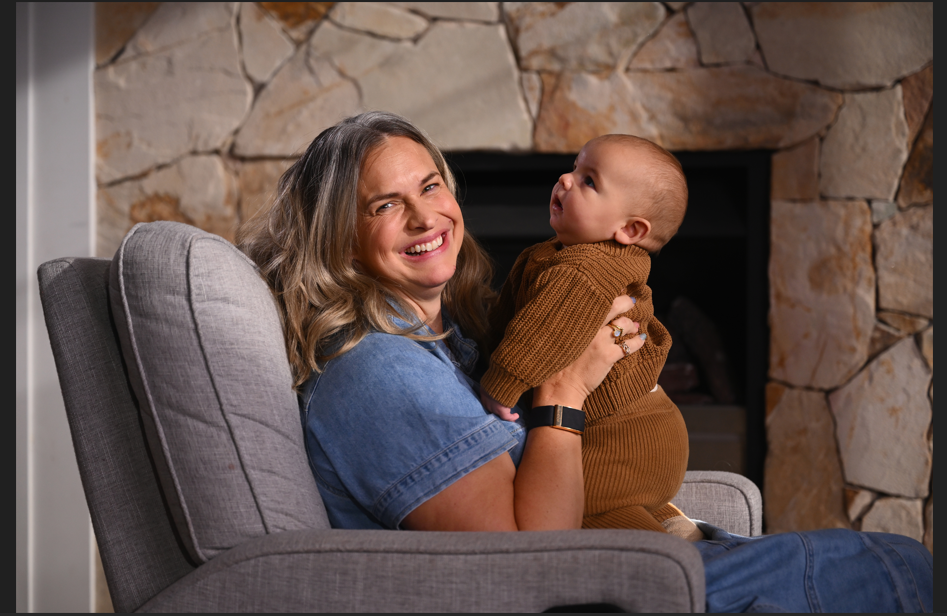Pregnant, planning a pregnancy or breastfeeding?
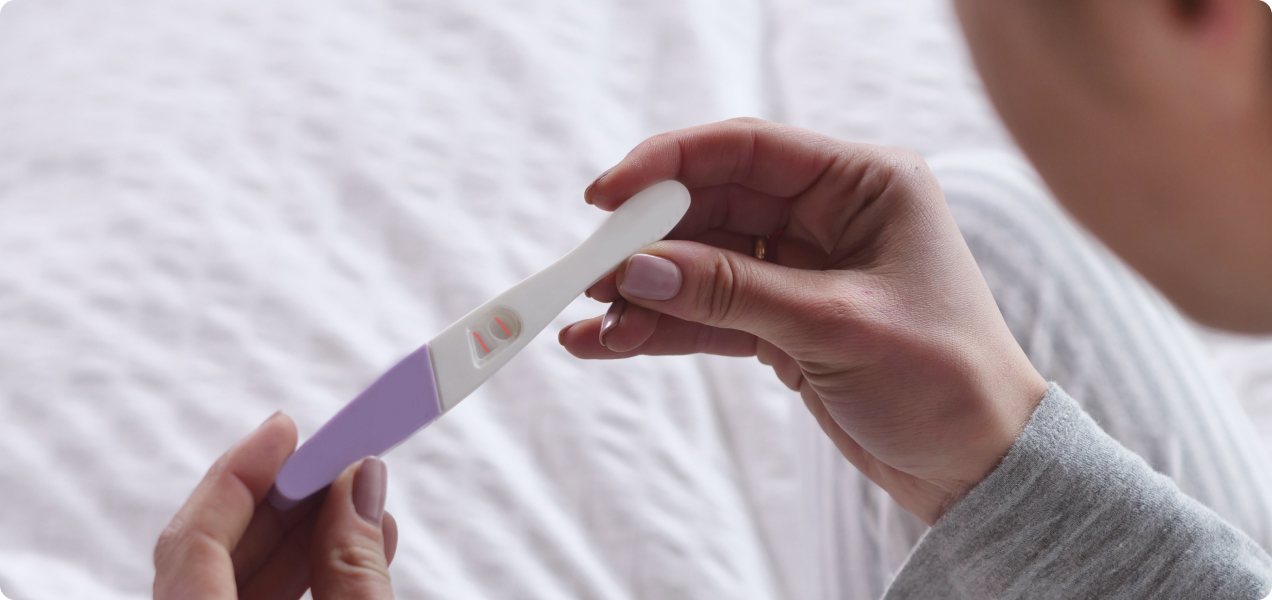
Give your baby the best possible start and avoid the risks of Fetal Alcohol Spectrum Disorder (FASD). If you are pregnant or planning a pregnancy, you should not drink alcohol. If you are breastfeeding, not drinking alcohol is safest for your baby.
The Australian guidelines to reduce health risks from drinking alcohol advise women who are planning a pregnancy or pregnant not to drink alcohol, to prevent alcohol harming your unborn child.
For women who are breastfeeding, not drinking alcohol is also safest for your baby.
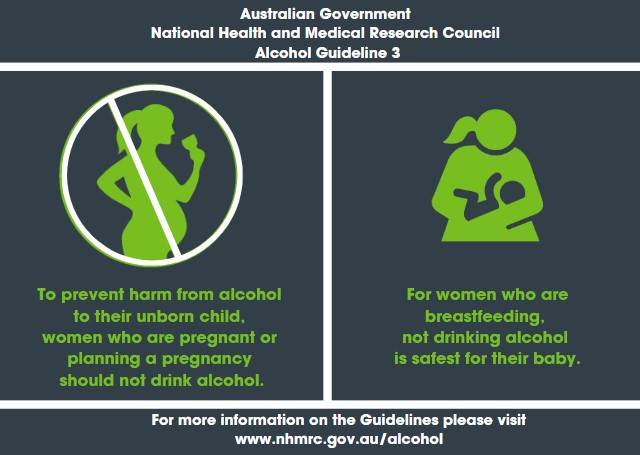
Planning
Planning a pregnancy? It’s important for both partners to be in their best physical condition to increase the likelihood of conceiving a healthy baby. This means that it’s a good idea to understand how alcohol can affect your chances of conceiving.
Drinking alcohol can affect both women’s and men’s fertility. Research has found that even drinking moderately can increase the time it takes to get pregnant and reduce your chances of having a healthy baby. You can be pregnant for a few weeks before realising, so it’s best to act now.
Effects on women
Drinking even small amounts of alcohol can increase the time it takes you to get pregnant. Drinking excessive amounts of alcohol can affect your menstrual cycle (periods) and ovulation, which can make it difficult to conceive (get pregnant).
Effects on men
Drinking alcohol excessively can decrease your sex drive and performance. Drinking too much alcohol can also reduce the amount of testosterone in your blood and increase your risk of male fertility problems.
Pregnant
To prevent harm from alcohol to your unborn child, women who are pregnant or planning a pregnancy should not drink alcohol.
Alcohol can cross from the your blood stream into your baby’s blood stream. This can affect your baby’s development. If you are pregnant and drink, then so does your baby. This can cause harm.
The risks of alcohol on pregnancy
Prenatal alcohol exposure can cause FASD. This is a term used to describe a range of conditions due to brain damage caused by alcohol exposure before birth.
Other effects caused by drinking alcohol during pregnancy can include:
- miscarriage
- still birth
- premature birth
- low birth weight.
Drinking before knowing about pregnancy?
It’s important to let your doctor, obstetrician or midwife know if you drank alcohol before you knew you were pregnant.
Partners, friends and family members of pregnant women
If you have a friend or family member who is pregnant and drinking alcohol, it’s important to support them to stop drinking.
Breastfeeding
The amount of alcohol in your bloodstream is the same as the amount of alcohol in breast milk. If you are breastfeeding, not drinking alcohol is safest for your baby.
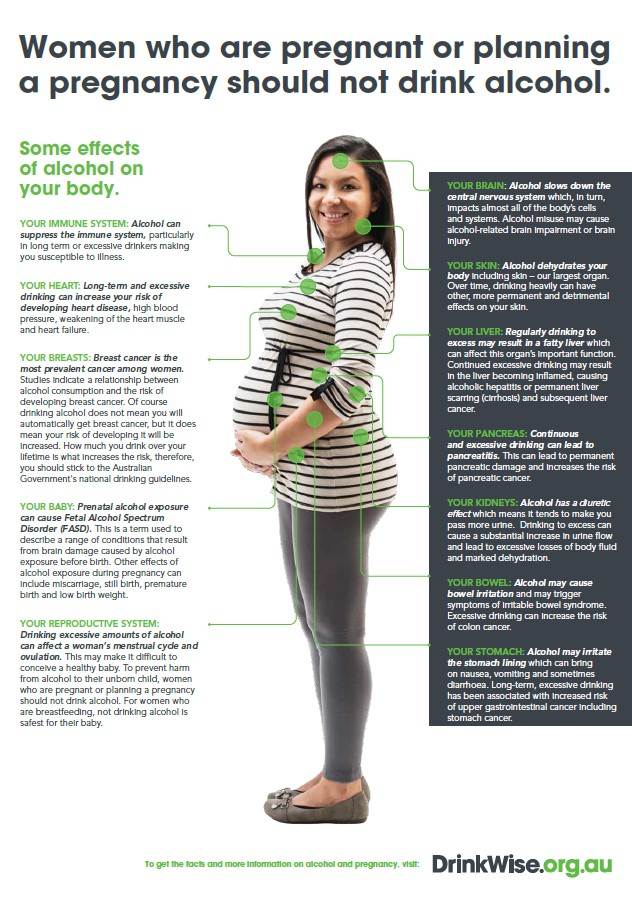
Looking for more information
For more information about alcohol when planning a pregnancy, when pregnant or when breastfeeding please talk to a doctor, obstetrician or midwife.
DrinkWise – Fetal Alcohol Spectrum Disorder (FASD) Awareness Program (webpage)
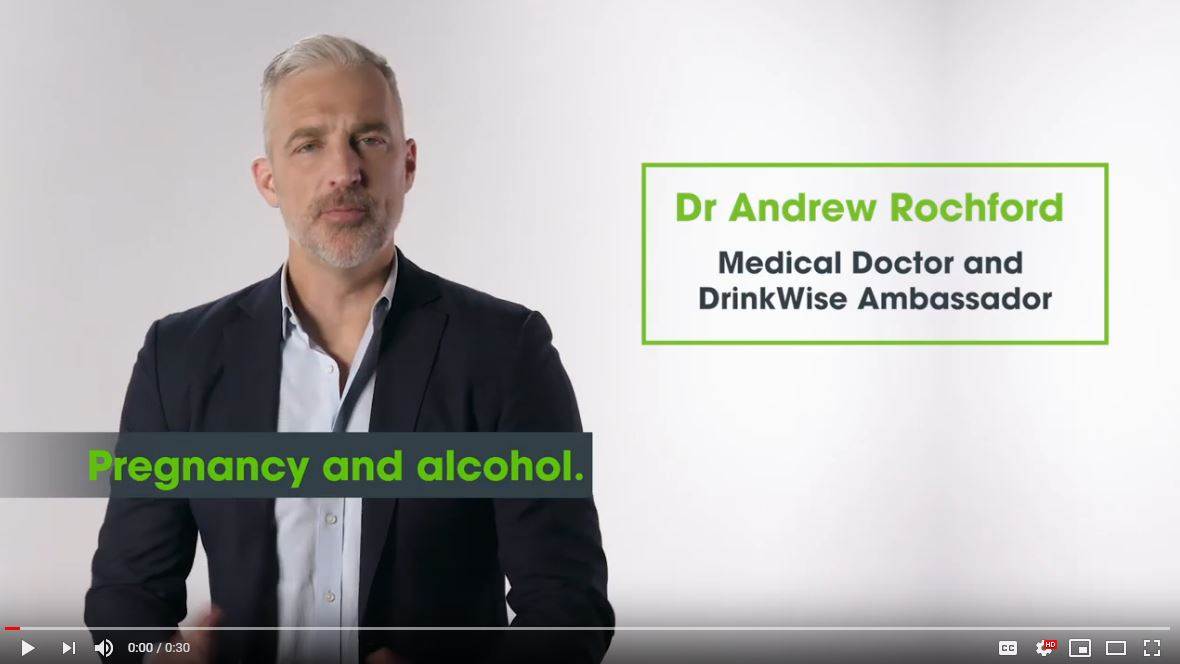
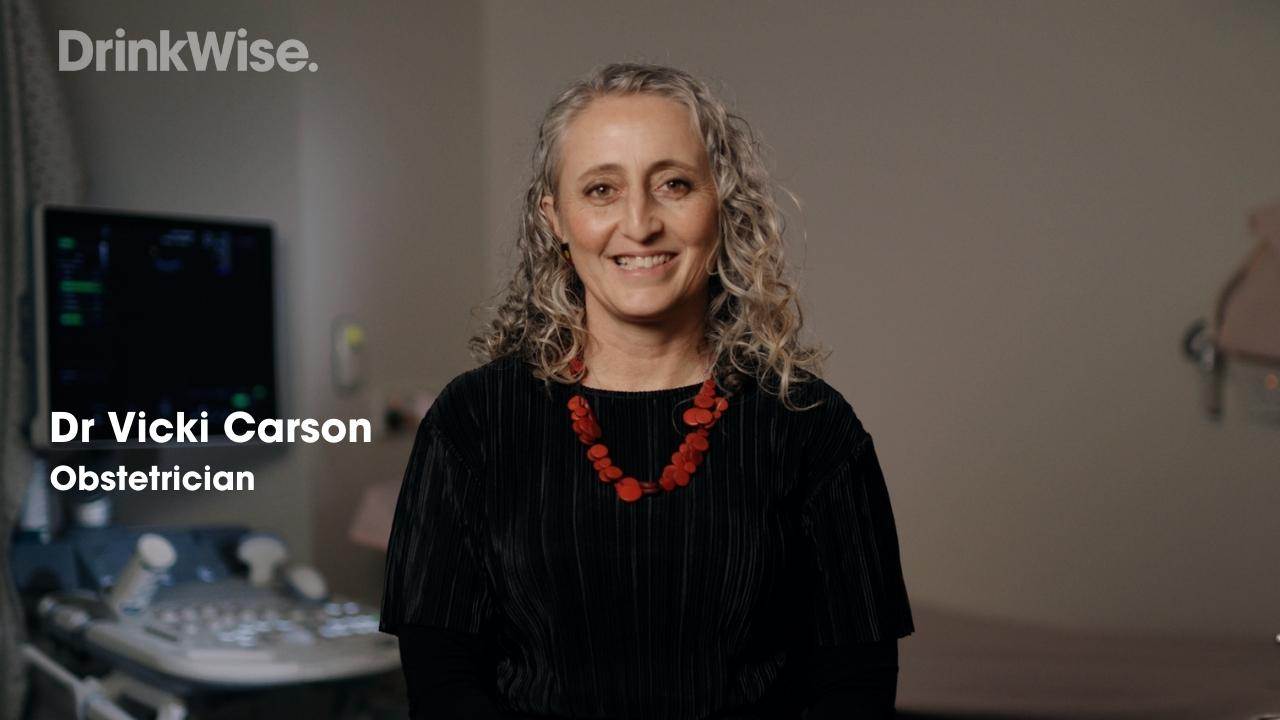

 Video
Video

